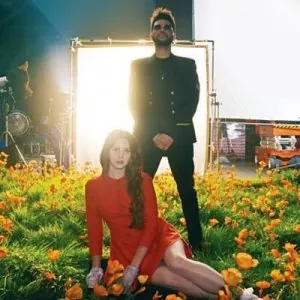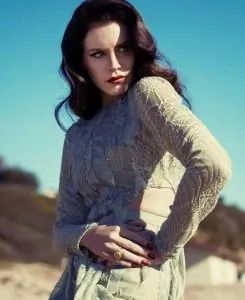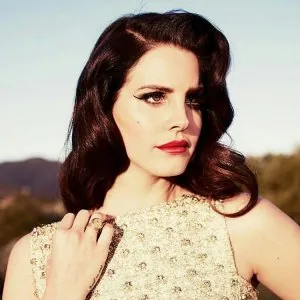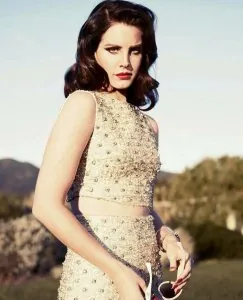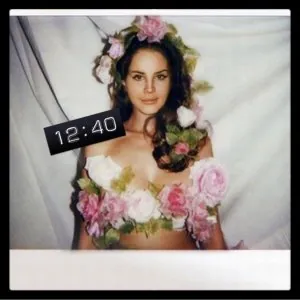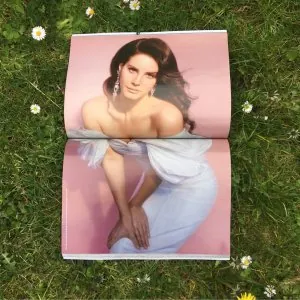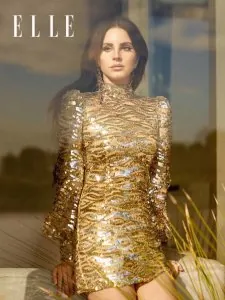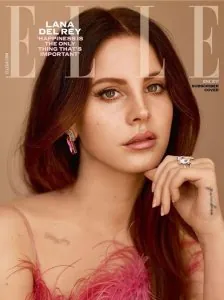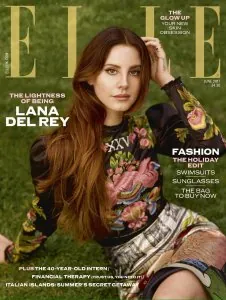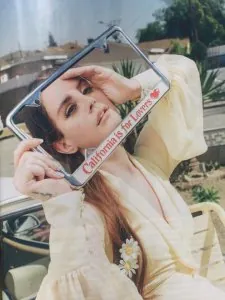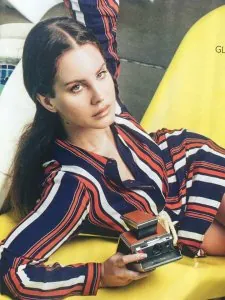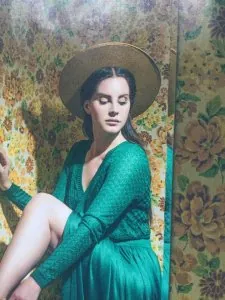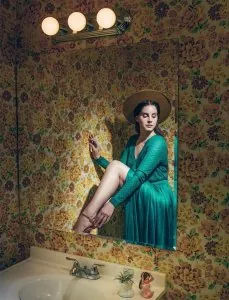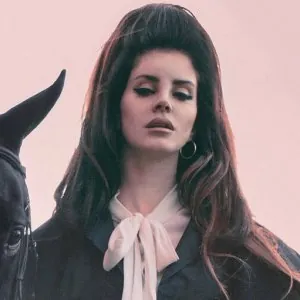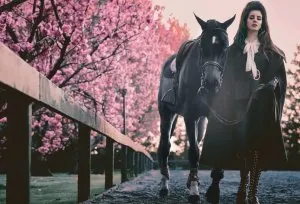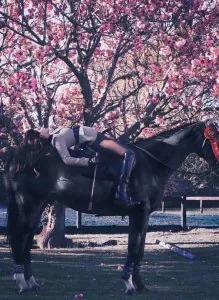lana del rey: wild at heart
‘Is this the mysterious Lana Del Rey?’ — set to release her era-defining fifth LP, pop's dream-queen shoots the LA breeze with grunge hellraiser Courtney Love
“Is this the mysterious Lana Del Rey?”
Courtney Love’s gravelly voice is unmistakable on the line next to Lana Del Rey’s syrupy sing-song: “Is this the one and only Courtney Love?”
It’s been a while since any of us has heard from Del Rey. She’s calling Love from her home in California a few weeks after releasing “Love”, the booming, lounge-y first single off her upcoming fifth studio album, Lust for Life. Although Del Rey’s last record, Honeymoon, was released only a year and a half ago, that particular span has felt like forever. An anti-anthem of sorts, “Love” takes into account turbulent times, offering commiseration as opposed to call-to-action. Lines like “the world is yours and you can’t refuse it” slip under a ringing chorus that proclaims, “You get ready, you get all dressed up to go nowhere in particular.” The video rockets a group of teenagers, current-day devices in hand, to a vintage-rendered outer space.
It’s a message that could easily be mistaken for nihilism. A month earlier, though, Del Rey pre-empted criticism by Instagramming the Nina Simone quote, “An artist’s duty, as far as I’m concerned, is to reflect the times.”
Which is perhaps what Del Rey does best. Lust for Life could be called the next chapter in a long-running investigation into era-non-specific youth qualifiers that started with the self-directed video for her breakout single, “Video Games”. That song perfectly crystallised a mood and a moment, splicing an at-home aesthetic heretofore only found in webcam vlogs with imagery of a 1950s red carpet, an iPod billboard, and Paz de la Huerta falling in front of paparazzi. While Del Rey often insists that she’s lost in reverie, obsessed by the past, her music is a poignant reflection of a generation that continues to resist expectations. It’s a study, too, of femininity in general. For isn’t womanhood itself, she appears to ask, steeped in anachronism?
Both Lana Del Rey and Courtney Love write about irresistible institutions – Hollywood, mainstream acceptance and powerful men. The heartbreaking twist of each narrative is that the singers will always be outside the circles they describe desiring. While Love deftly played the unfiltered outsider as frontwoman with Hole through the 90s, in the age of infinite footnotes, Del Rey has taken up the role of oblivious misfit, more prone to a pout than a scream.
‘Is this the mysterious Lana Del Rey?’ — set to release her era-defining fifth LP, pop's dream-queen shoots the LA breeze with grunge hellraiser Courtney Love
“Is this the mysterious Lana Del Rey?”
Courtney Love’s gravelly voice is unmistakable on the line next to Lana Del Rey’s syrupy sing-song: “Is this the one and only Courtney Love?”
It’s been a while since any of us has heard from Del Rey. She’s calling Love from her home in California a few weeks after releasing “Love”, the booming, lounge-y first single off her upcoming fifth studio album, Lust for Life. Although Del Rey’s last record, Honeymoon, was released only a year and a half ago, that particular span has felt like forever. An anti-anthem of sorts, “Love” takes into account turbulent times, offering commiseration as opposed to call-to-action. Lines like “the world is yours and you can’t refuse it” slip under a ringing chorus that proclaims, “You get ready, you get all dressed up to go nowhere in particular.” The video rockets a group of teenagers, current-day devices in hand, to a vintage-rendered outer space.
It’s a message that could easily be mistaken for nihilism. A month earlier, though, Del Rey pre-empted criticism by Instagramming the Nina Simone quote, “An artist’s duty, as far as I’m concerned, is to reflect the times.”
Which is perhaps what Del Rey does best. Lust for Life could be called the next chapter in a long-running investigation into era-non-specific youth qualifiers that started with the self-directed video for her breakout single, “Video Games”. That song perfectly crystallised a mood and a moment, splicing an at-home aesthetic heretofore only found in webcam vlogs with imagery of a 1950s red carpet, an iPod billboard, and Paz de la Huerta falling in front of paparazzi. While Del Rey often insists that she’s lost in reverie, obsessed by the past, her music is a poignant reflection of a generation that continues to resist expectations. It’s a study, too, of femininity in general. For isn’t womanhood itself, she appears to ask, steeped in anachronism?
Both Lana Del Rey and Courtney Love write about irresistible institutions – Hollywood, mainstream acceptance and powerful men. The heartbreaking twist of each narrative is that the singers will always be outside the circles they describe desiring. While Love deftly played the unfiltered outsider as frontwoman with Hole through the 90s, in the age of infinite footnotes, Del Rey has taken up the role of oblivious misfit, more prone to a pout than a scream.

